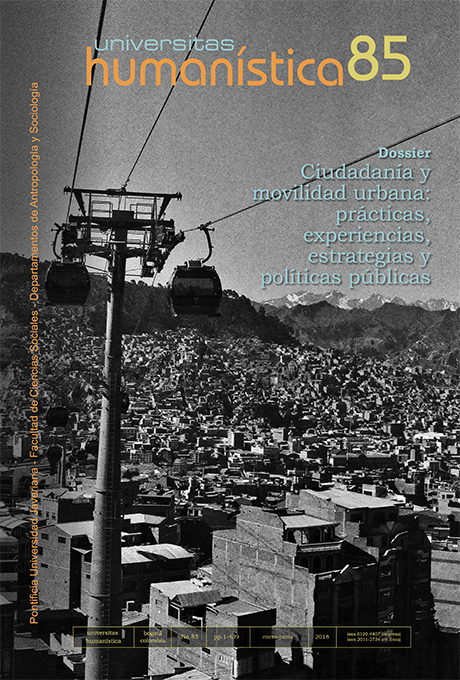Resumen
Los estadios del curso de la vida tienen una naturaleza tanto biológica como social y discurren en contextos históricos, culturales, sociales y políticos diversos que los influencian y a su vez los transforman. Respecto a la adolescencia y a la connotación que de ella se hace en las políticas públicas, se devela principalmente desde una perspectiva estructuralista como una etapa etaria, prefijada, homogénea e inmanente; aislada de los sentidos y significados que cada sujeto y grupo social construye de sí mismo en el tiempo y espacio. La presente revisión tiene como objetivo analizar el abordaje y subjetividad que emerge de esta noción en las políticas públicas dirigidas para este grupo social. A partir de los hallazgos se evidencia que, desde una concepción acentuadamente funcionalista-estructuralista, se lucha por legitimar sistemas y una jerarquización social de edades para establecer intervenciones públicas que en su mayoría se dan bajo la mirada adultocentrista.

La revista Universitas Humanística se encuentra registrada bajo la licencia Creative Commons Reconocimiento 4.0 Internacional. Por lo tanto, esta obra se puede reproducir, distribuir y comunicar públicamente en formato digital, siempre que se reconozca el nombre de los autores y a la Pontificia Universidad Javeriana. Se permite citar, adaptar, transformar, autoarchivar, republicar y crear a partir del material, para cualquier finalidad (incluso comercial), siempre que se reconozca adecuadamente la autoría, se proporcione un enlace a la obra original y se indique si se han realizado cambios. La Pontificia Universidad Javeriana no retiene los derechos sobre las obras publicadas y los contenidos son responsabilidad exclusiva de los autores, quienes conservan sus derechos morales, intelectuales, de privacidad y publicidad.
El aval sobre la intervención de la obra (revisión, corrección de estilo, traducción, diagramación) y su posterior divulgación se otorga mediante una licencia de uso y no a través de una cesión de derechos, lo que representa que la revista y la Pontificia Universidad Javeriana se eximen de cualquier responsabilidad que se pueda derivar de una mala práctica ética por parte de los autores. En consecuencia de la protección brindada por la licencia de uso, la revista no se encuentra en la obligación de publicar retractaciones o modificar la información ya publicada, a no ser que la errata surja del proceso de gestión editorial. La publicación de contenidos en esta revista no representa regalías para los contribuyentes.


